Loop8: Summer of Gods - Switch Review
"emotion-driven, looping gameplay"
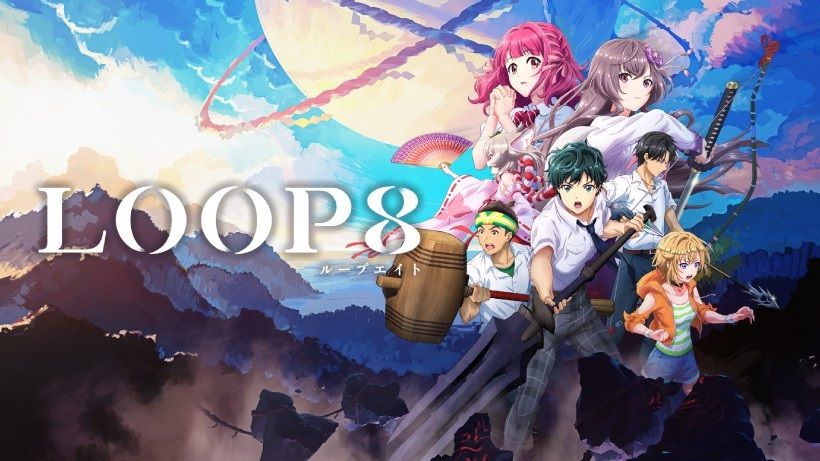
Released in the first week of June 2023 (aligned with the northern hemisphere’s summer), Loop8: Summer of Gods is a charming mix of JRPG, visual novel, and life/social simulator. The game has also been dubbed a litRPG: a role-playing game with elements from literary sci-fi and fantasy novels. You play as Nini, a transfer student who arrives from space to live out his first summer on Earth. In August 1983, he settles in the rural Japanese town of Ashihara, situated between some lush mountains and the sea.
You are free to spend the August days as you want. However, there are many secrets to unveil about yourself; the town’s residents; your otherworldly powers, including the ability to loop/turn back time; and the otherworld in general. Oh yeah, and the world will end in X days, and you’re the only one who can prevent it.
The Good
Right away, Persona 4 and Persona 5 fans will probably notice the inspiration taken from those titles. (You arrive in Inab– no, Ashihara! And there’s even a character who calls you “Big Bro”!). While its similarities with the Persona series are pretty undeniable, Loop8: Summer of Gods distinguishes itself with its greater focus on character relations and their effects.
Every social interaction, in and out of battle, raises or lowers feelings of friendship, affection, and/or hate between characters (inspo drawn from reality?). The game’s emotion-driven AI responds to your chosen suggestions and conversations, creating new relationship and battle dynamics and options. If you mess up – or if you just feel like it, or you reach New Game+ – you can loop back to 1 August with a clean slate.
But going back to the Persona inspirations, first, Loop8’s protagonist is a transfer student (a bit of a beloved trope) with mysterious god-given powers. Second, the game has a hidden underworld called Yomotsu Hirasaka – a mirror world of Ashihara – where you fight disgruntled creatures called Kegai (kind of like Persona’s Shadows). They are bent on destroying the human realm. You can chat with them and learn a bit about why they ended up as Kegai, or you can slay them. Third, you raise your stats through daily activities, like attending summer classes, training, reading magazines (in Ashihara’s Main Street), gaming, and socialising. And fourth, your lovingly cultivated relationships increase party member stats and unlock battle skills.
Likewise, Loop8 also has turn-based combat. But the fights differ from thereon. You don’t actually have HP, MP, or XP. Instead, your actions expend Stamina or Energy, which you’ve been increasing – and using on various activities – in the real Ashihara. And as with everyday conversations, your party’s combat options and their success depend on how much friendship, affection, and/or hate you’ve accumulated between characters. These levels also affect boss fights. The player only controls Nini during battles while the others act autonomously (pro or con?) – including healing themselves. You’ve got to be careful because you can lose members forever.
In addition to raising stats through daily activities, Nini receives blessings from assorted gods. But you keep them when you loop, so you don’t start from scratch. According to the game: “All characters return to as they originally were on August 1. Stats and emotional states reset to default, but will quickly increase to their previous values. Any blessings collected are carried over.”
Regarding the gods, what exactly is Nini’s unique ability? Along with looping, he has a power called Demon Sight to ascertain others’ actions, moods, and desires. This helps the player select the best suggestions.
Current relationship values and moods (Normal Mood, Tense Mood, etc.) dictate whether interactions will be successful. Developing your ties unlocks new social options such as events with cutscenes. In daily life, like in battles, others act freely, based on their whims, personas, moods, and desires. You get to stay out until 3am before you’re forced back home to progress to the next day.
It takes a bit to understand how all this works, but overall, the emotion-focused AI makes for an interesting and innovative RPG experience. Loop8 has good replayability because each loop is distinctive. As you keep playing, you see how your options lead to various outcomes. The game kind of reflects how quickly AI is progressing, with developers’ continuous efforts to create programs that generate life-like and human-passing products and representations. Loop8’s character models and scenery are well designed, with a visual novel or even an anime aesthetic. It's almost like running around in a modern anime (I don’t watch it much, so I don’t know what to compare the game to). I appreciate how the colour palettes switch based on the time of day. The soundtrack is relaxing and songs change based on Nini’s mood.
TL;DR
- Distinctive, emotion-oriented relationship and battle systems
- Each loop is unique; high replayability
- Lovely visuals; pleasant soundtrack
- Cosy and relaxing
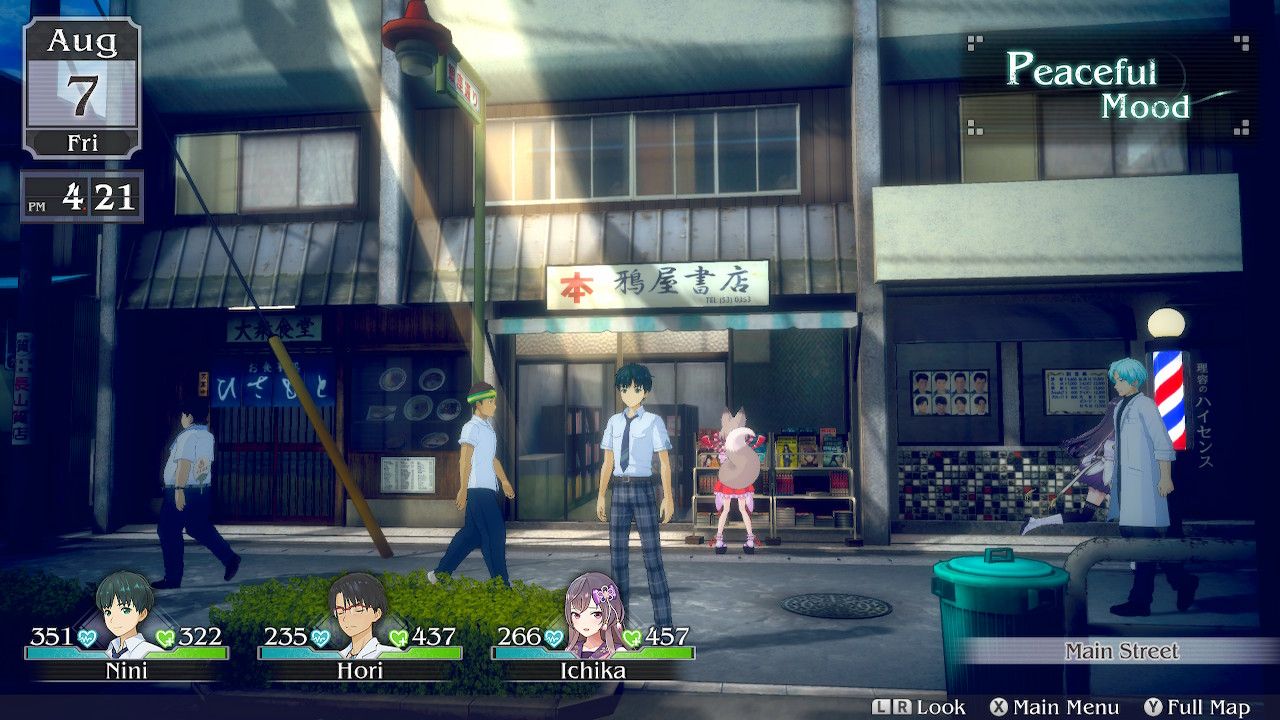
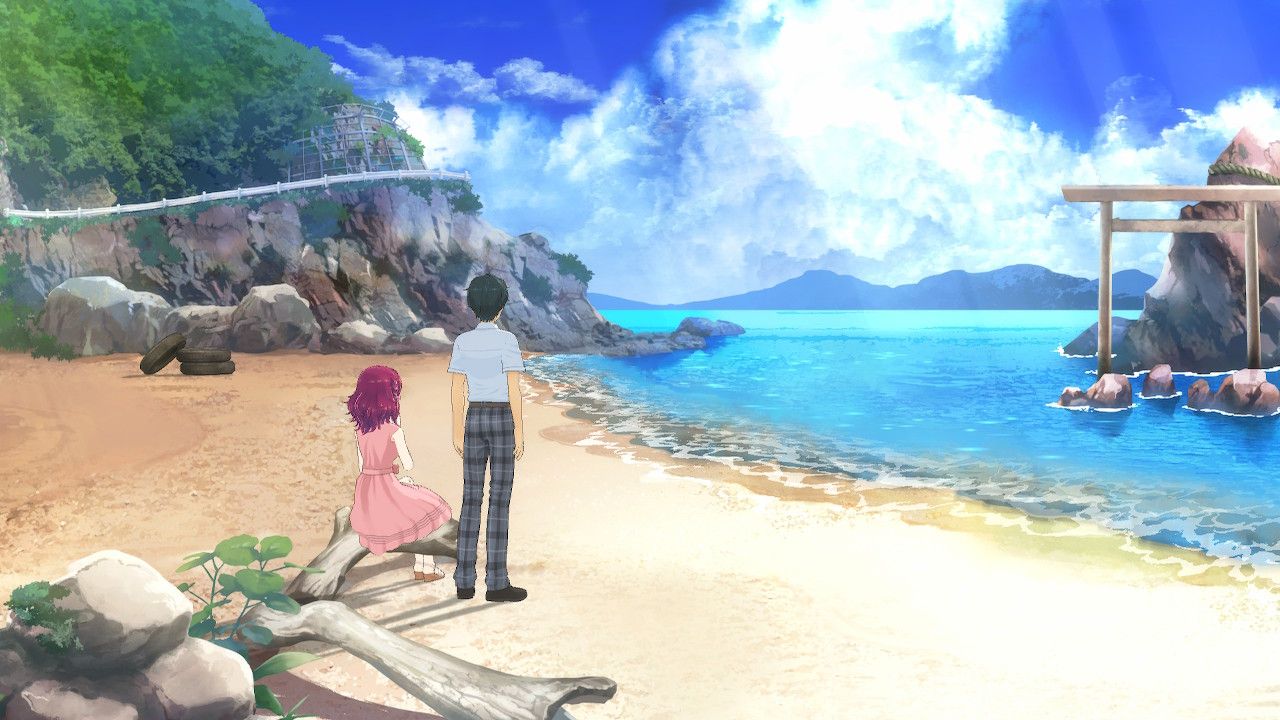
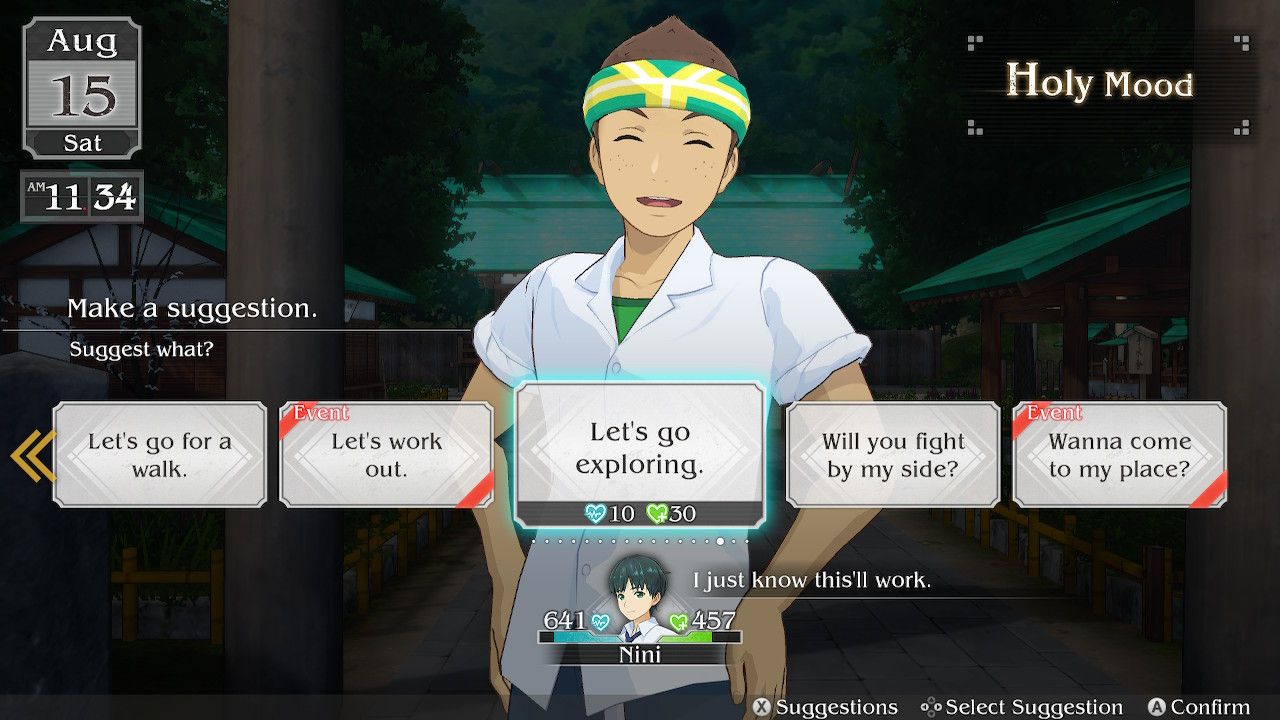
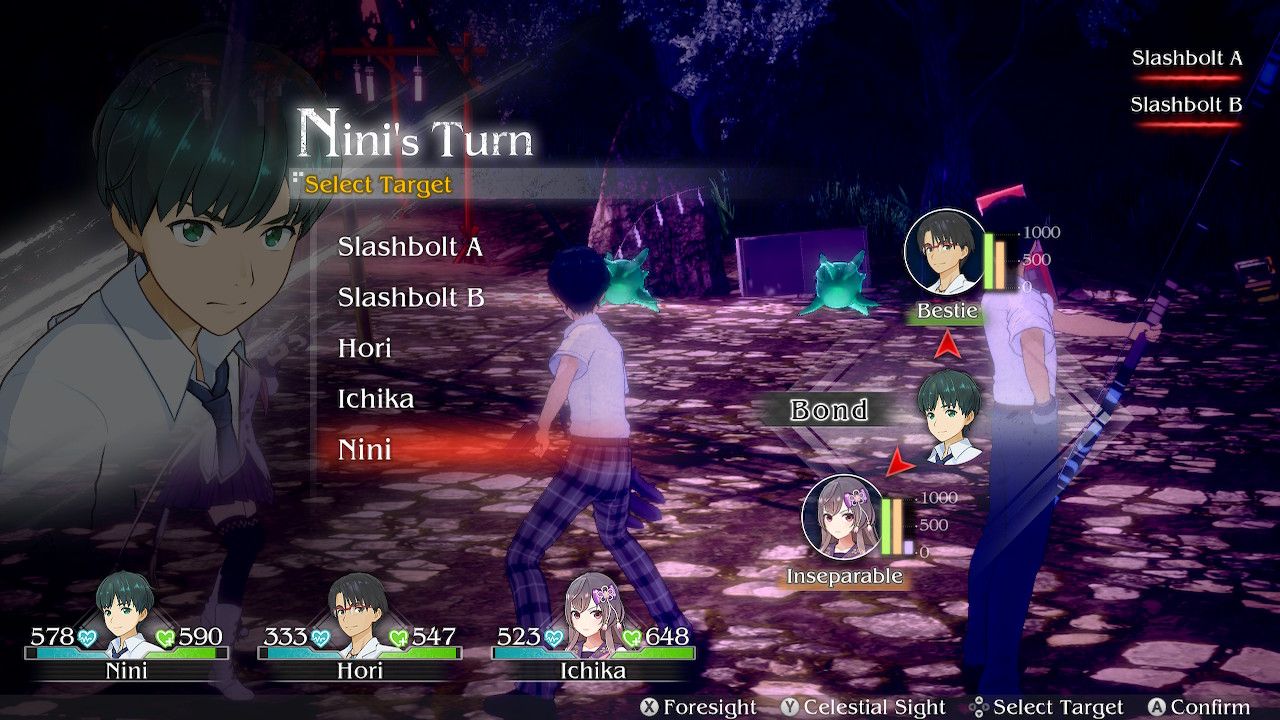
The Bad
I enjoyed Loop8: Summer of Gods but all games have their drawbacks. Although the time-reversing mechanic is fun and original, it also requires the player to re-read or fast-forward through tonnes of the same dialogue. It can get repetitive. Unlike in real life, you get to rewind time, clear everyone’s memories, and choose differently, but it also means starting all over again! However, each character does keep their godly blessings. And it is easy to raise your stats back to pre-loop values.
Also, the game has a cute divine messenger called Musasa who grants you blessings, increasing your stats. But the sheer number of times they pop up every day to repeat the exact same lines begins to grate on the nerves over time.
Although players are free to traverse the Loop8’s scenic locations – Nini’s home, Main Street, the beach, the shrine, etc. – you can only actually enter two buildings: your home and school. More options to interact with the settings would’ve made the game more fun. Likewise, the camera angle is fixed so you can’t look around much.
Kind of related to the above, party members randomly run around the scene for no particular reason. It just seemed a bit odd to me. Sometimes they do other weird stuff, like staring at a closed storefront for ages. It is also a bit unbelievable that a young kid would be casually chatting with their school teachers in the middle of a dark street at 11 pm on a Tuesday night. Got to raise those grades by any means possible!
Some gamers will be disappointed that there are nowhere near as many battles as in most JRPGs. Loop8 had to cut back on them because of its relational and emotional focus. It is not a dungeon crawler. Basically, there’s only Yomotsu Hirasaka to explore, where you encounter Kegai who are easy to defeat, gather magatama, and break the barrier to the bosses – who are pretty easy to defeat, too.
TL;DR
- Minimal/easy battles; no dungeons
- Fast-forward same dialogue every loop; can get repetitive
- Can only enter two buildings: home and school
- Party members sometimes act randomly

Final Score: 8/10
Overall, Loop8: Summer of Gods will likely appeal to fans of Persona and similar titles, life/social sims, and visual novels. Its emotion-driven, looping gameplay keeps the characters and plots dynamic (although the conversations do get kinda repetitive). And the game has a pleasant atmosphere and high replayability, which provides good return on investment.
PS: I love how Loop8 got an “8” out of 10.
Thank you for checking out our Loop8: Summer of Gods Switch review, thank you to Marvelous (via Decibel PR) for providing the review code and thank you to our Patreon Backers for their ongoing support:
- Andrew Caluzzi (Inca Studios / Camped Out)
- Bel Cubitt
- Jack Caven
- NintenVania Podcast
- RedHero

